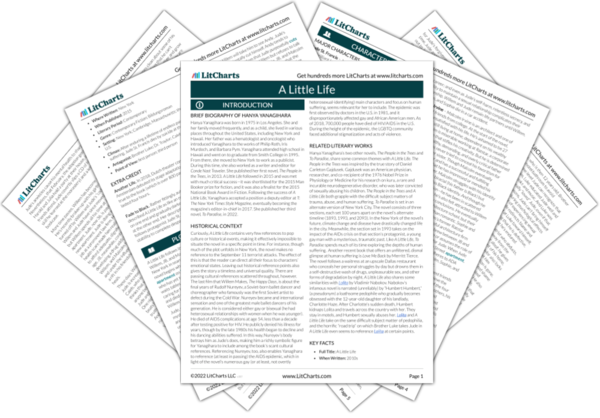Harold’s hypothetical case involving the van raises the issue of whether suffering is ever fair or unfair, or right or wrong—that a person’s actions bring about corresponding good or bad consequences. Harold feels guilty for not pushing Jude to pursue something creative, as though doing so would have made Jude’s life better. But Harold’s logic assumes that whatever misfortunes befell Jude were consequences that one can connect back to direct causes. In reality, life is not so logical, and suffering happens totally arbitrarily and independently of any person’s efforts to control it. It’s not clear when this section takes place, but the way Harold expresses regret over Jude suggests that he’s speaking from some point in the future, after which something bad has happened to Jude—something for which Harold feels responsible.


